by Bruce Doorly

Raritan would eventually send over 900 men and women overseas into the fight. Many of those battlefront stories have been told by this author. Thus, this article will tell of what was done on the Homefront in Raritan to aid in the war.

The initial attack at Hawaii (Pearl Harbor) demonstrated that there was a real possibility of enemy planes dropping bombs on the mainland U.S.. The standard defense when being bombed from above is for all lights to be turned off to hide the location of the densely populated areas. To prepare for this, it would be necessary to hold blackout drills, also called air raid drills.

The first air raid drills were simple, but as time went by future air-raids drills would add more complexity, such as the movement of various emergency vehicles and personnel to needed areas.

To keep watch for any enemy planes, nine airplane observation posts were set up throughout Somerset County. The nearest lookout post to Raritan was listed as Just west of Raritan on Route 202. These posts were little shacks that had an accessible rooftop equipped with a phone.
The observers (all volunteers) would sit outside on the roof of the shack and watch for any planes.
The altitude that planes flew back then allowed for easy identification. Each post had pictures and diagrams of all kinds of planes, friendly and enemy - on its walls. When a plane was sited, they would telephone into the army tracking center. For the first part of the war these posts were taken very seriously, but as the war went on and our enemies were obviously reduced to being on the defensive rather than on the offensive, these posts were abandoned.
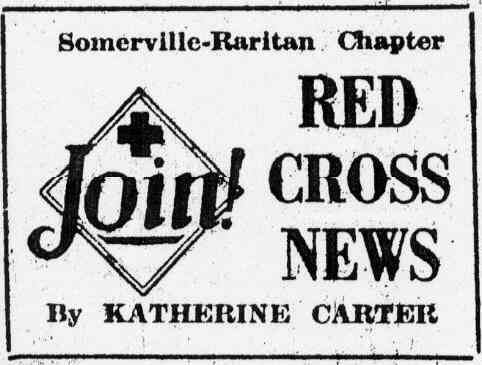
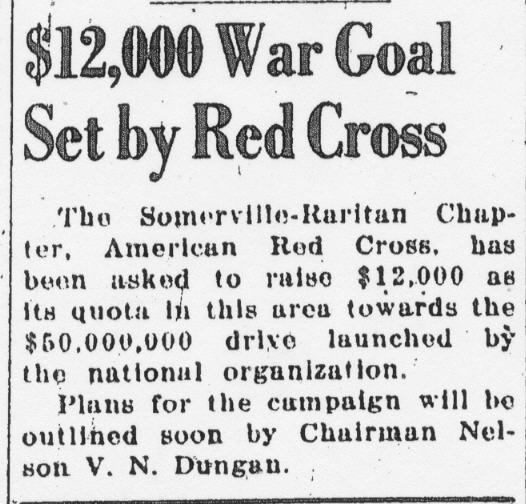
The head of the districts included Reverend Rowland Koskamp of The Third Reformed Church, police chief Lorenzo Rossi, and tavern owner (and future mayor) Rocky Miele. The fundraisers made their goal and then some, bringing in $18,000. The Red Cross also provided volunteers to serve in the Somerset Hospital to alleviate the shortage of medical personnel who had been released to the military.
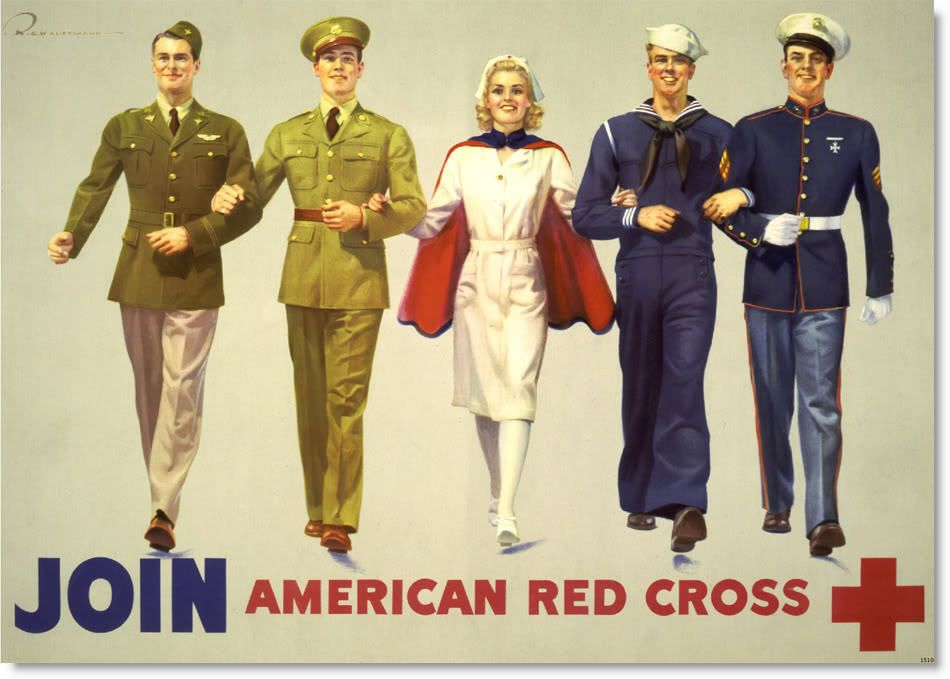
The Red Cross also organized the knitting of much-needed sweaters. Dozens of local women spent many hours in the home or at the Red Cross Center knitting clothes that would keep the soldiers and civilians in the war zones warm.
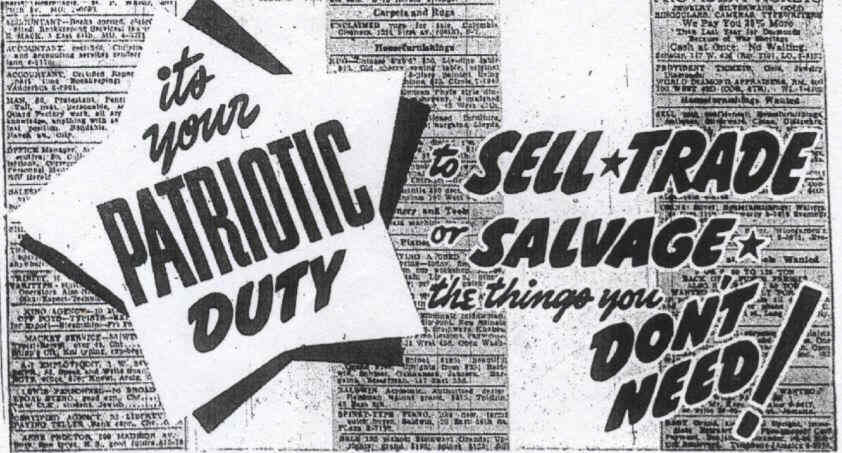
To gear up for mass production on a scale never seen before, the U.S. government put out a request for citizens to turn in their scrap metal.
Each town established a collection location where residents could drop off old junk metal. This metal would then be shipped to factories that would melt it down to make weapons. Peter Vitelli of Raritan remembers that kids eagerly rounded up scrap metal and deposited it in a pile that was setup at the Raritan Train Station.
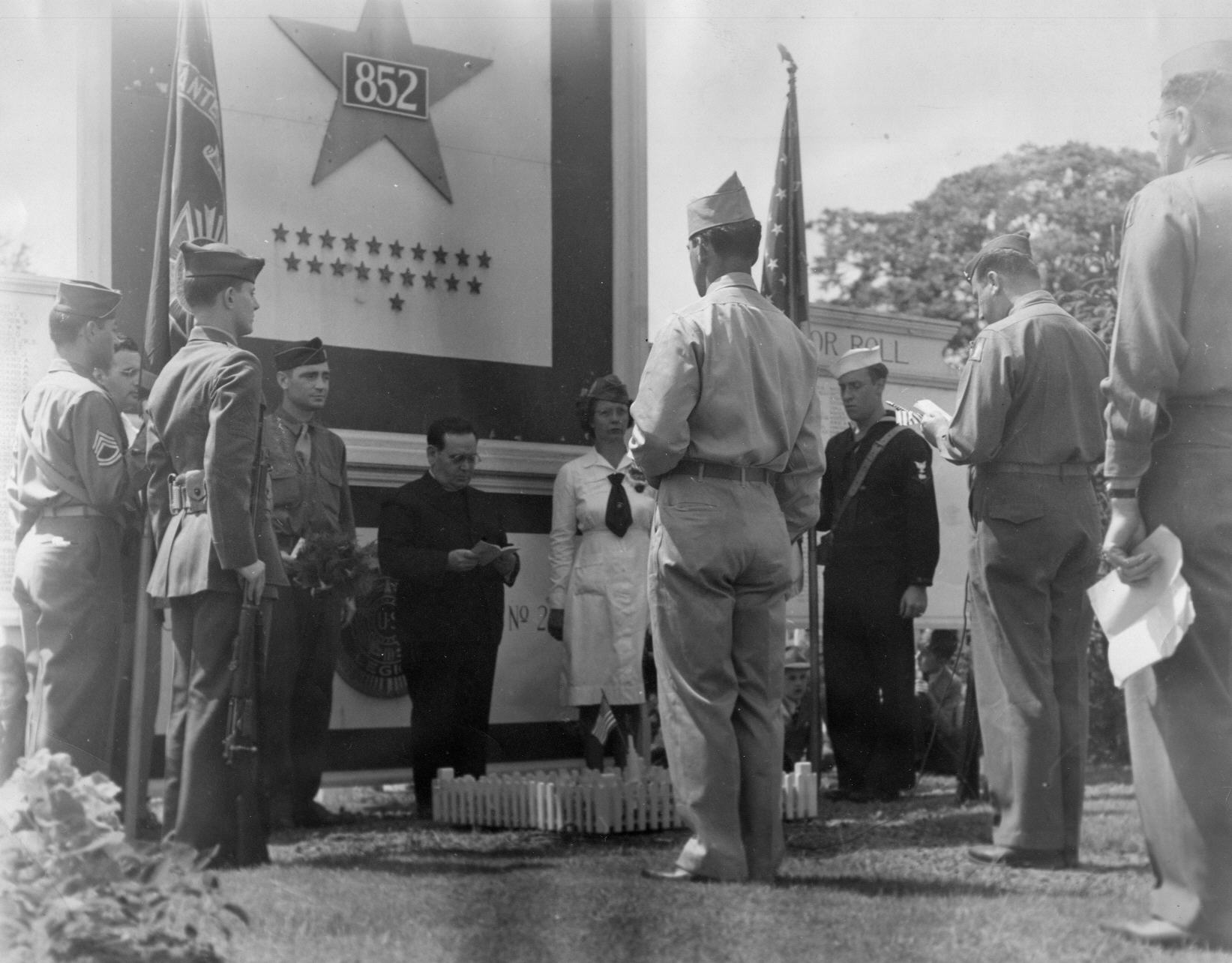
Some creative ways were found to help collect scrap metal. One Saturday the Raritan Movie Theatre held a morning matinee where admission was free if you donated at least 10 pounds of scrap metal.

He was very moved by this. Thus, he decided then that he would do whatever he could to help the boys in the service while they were away from, home fighting for our freedom.


The soldiers wrote back, expressing their thanks for the swell package they received. Five hundred of these letters to Tony Orlando survive today. When soldiers on leave came to The Centennial Tavern, their drinks were on the house. Tony would say years later While they were serving their country, I could at least serve them a beer.
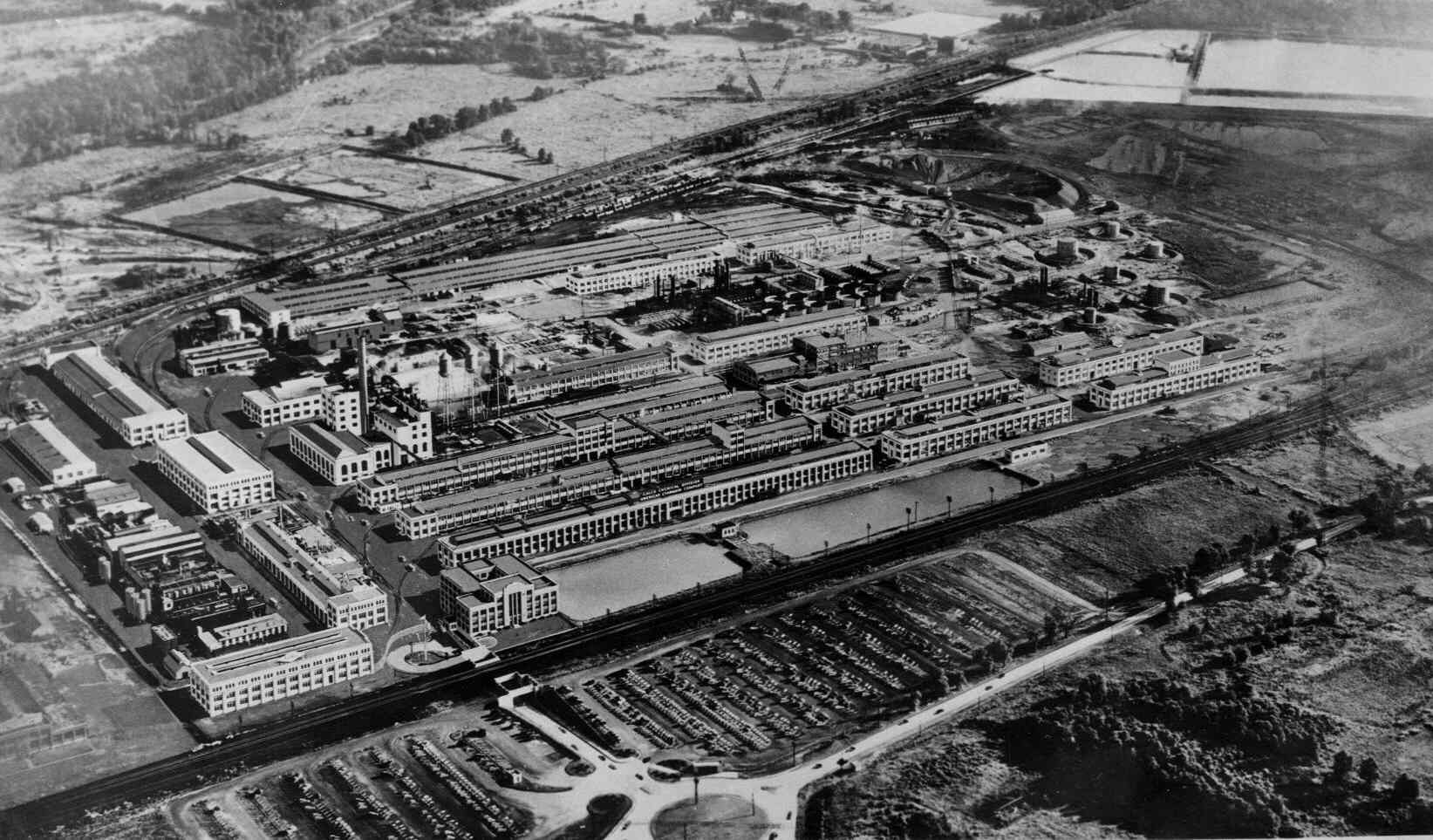
Calco Pharmaceuticals and Johns Manville Over a thousand local people worked at Calco Pharmaceuticals in Bridgewater. It was a large complex located behind where the Baseball Stadium for the Patriots is today.
A variety of items to support the war were manufactured here. These products included Sulfa drugs to treat infections from battlefield wounds, the paint used in the camouflaged military uniforms, and a chemical to aid in the production of synthetic rubber.

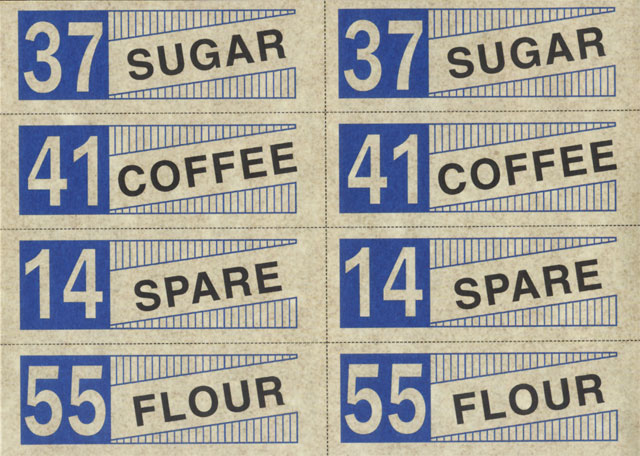
Those on the Homefront did many other things to support the war. They purchased War Bonds to finance the war, grew food in their Victory Gardens, and they gladly accepted the shortages of many products.